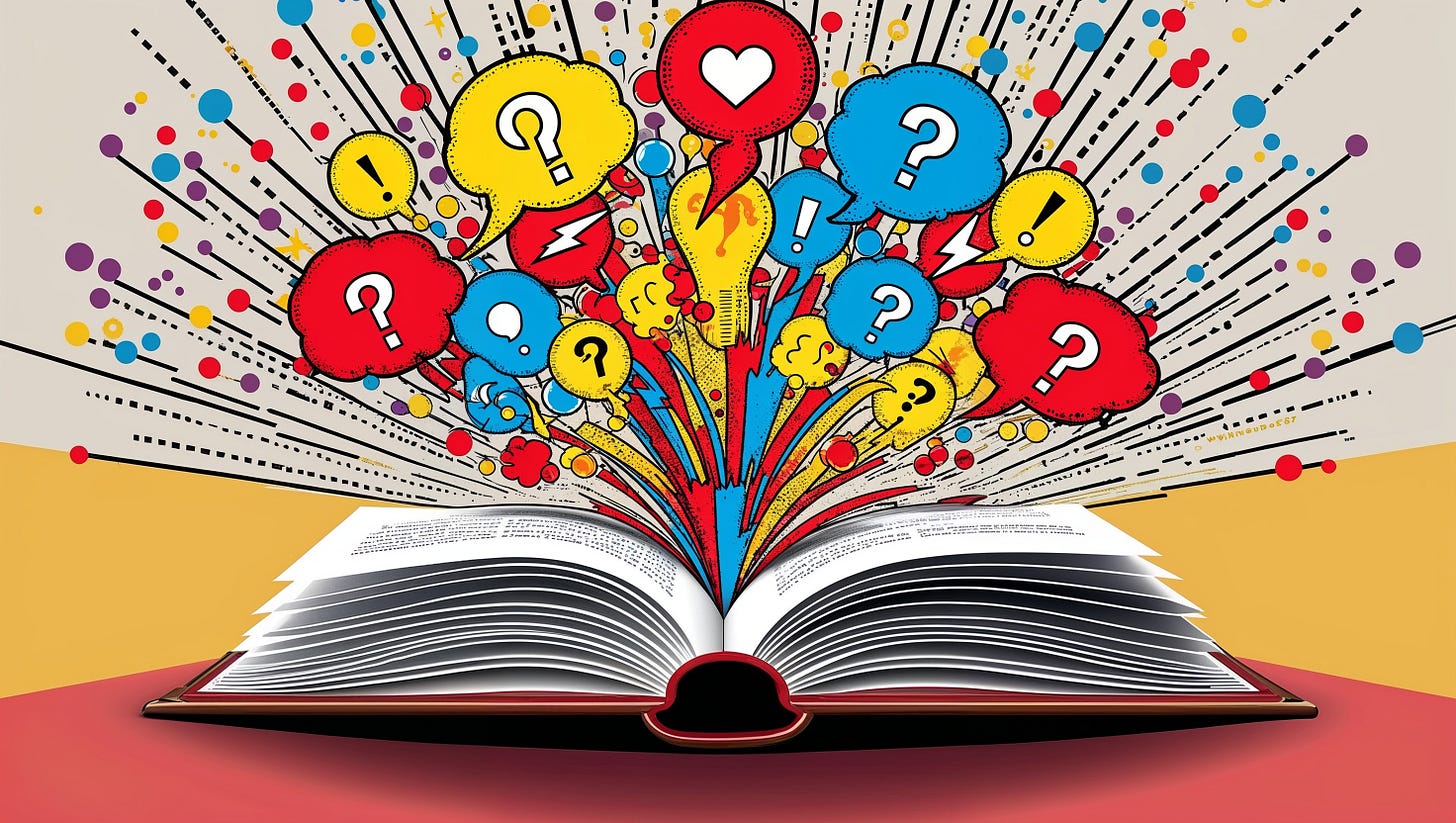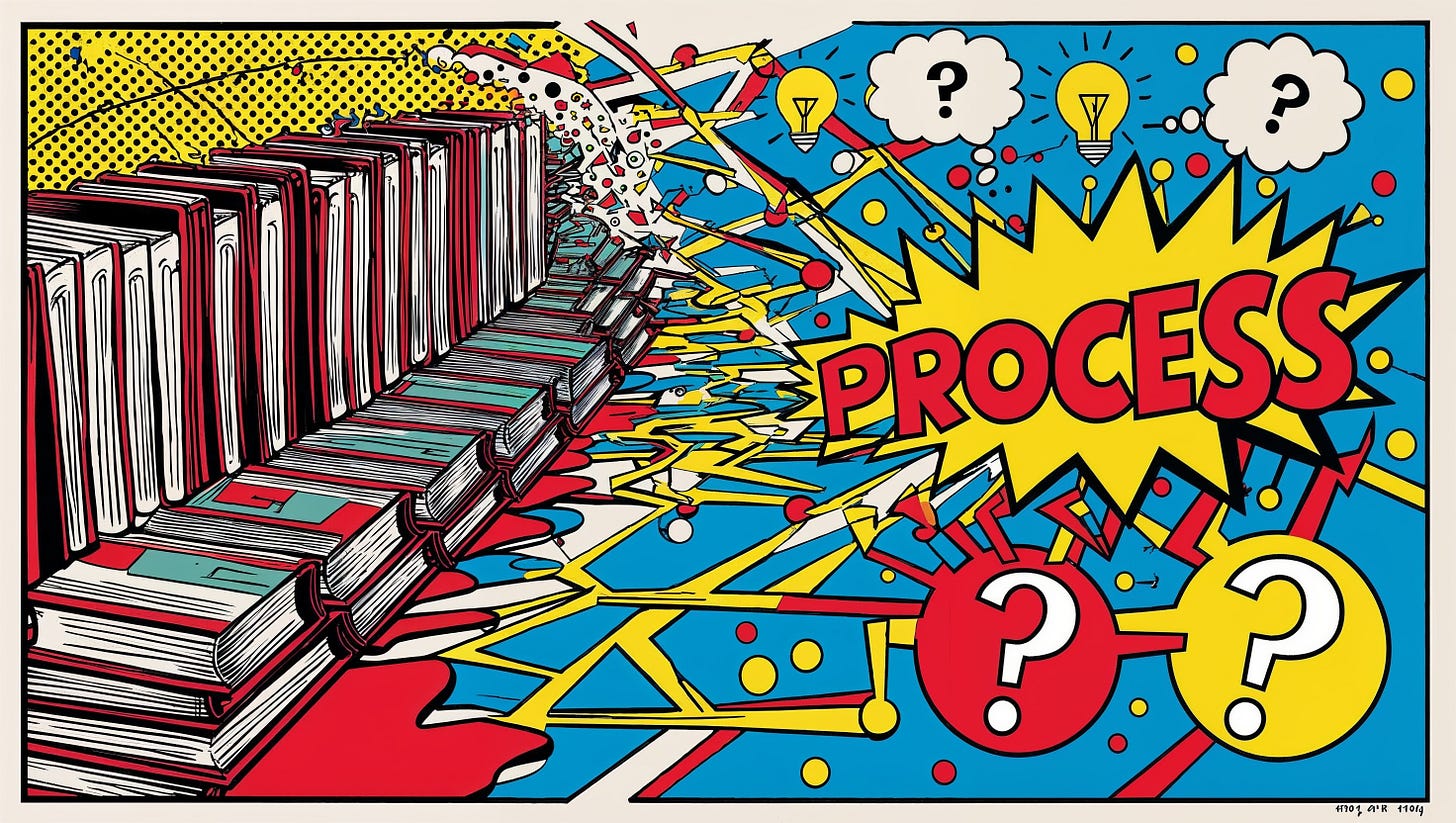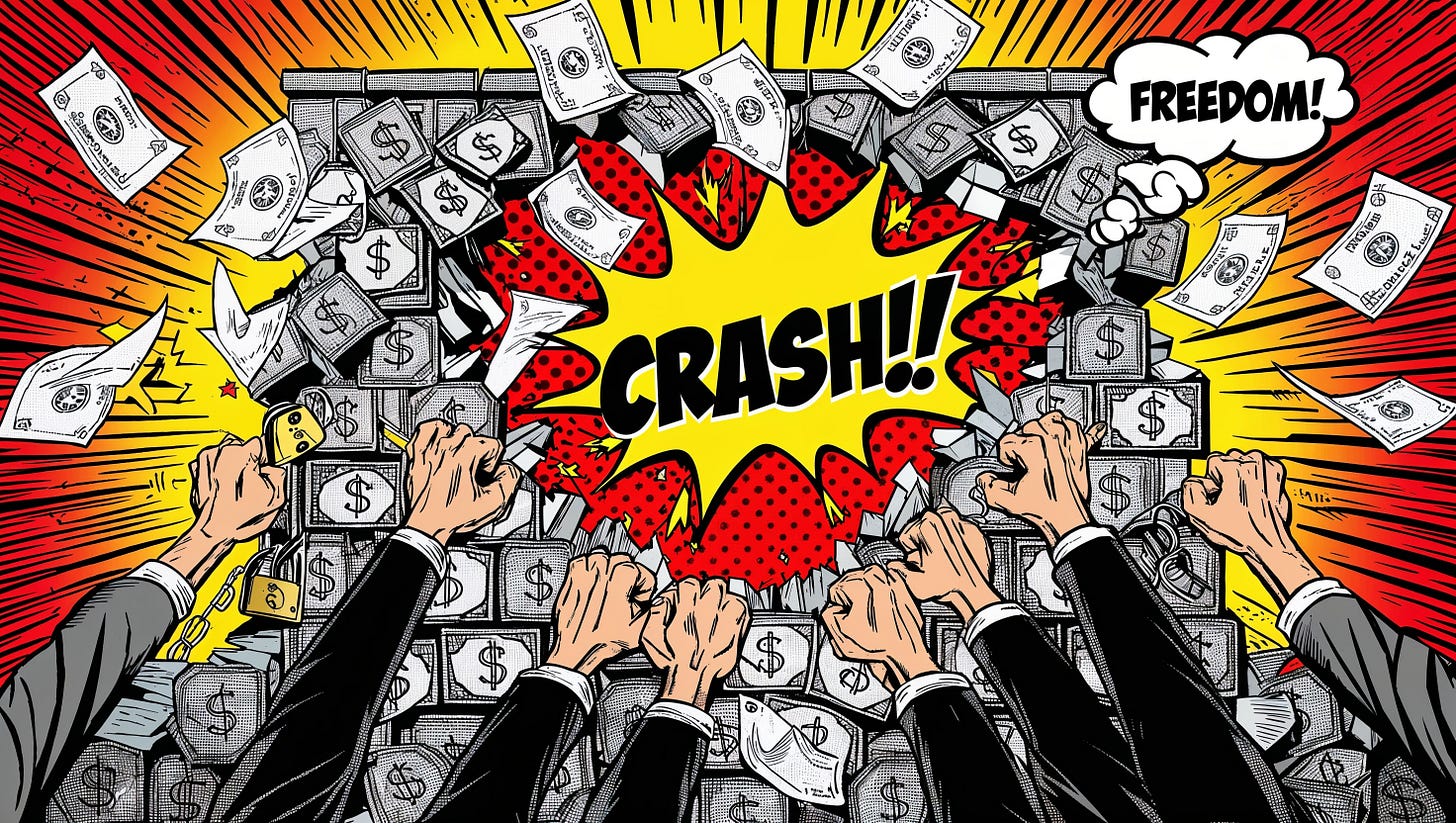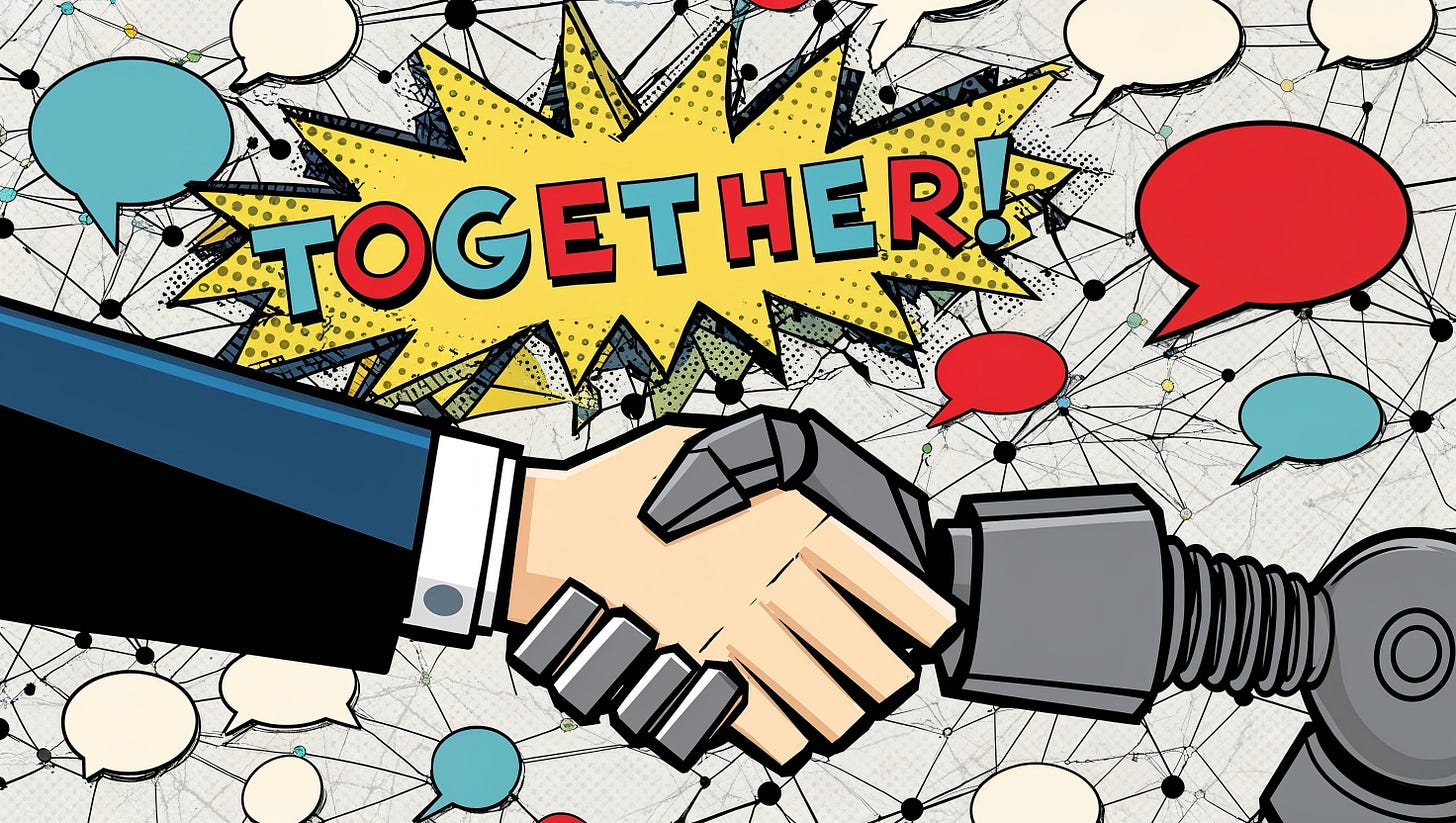The Book Is Dead, Long Live the Conversation
Why I Decided to Self-Publish and Embraced a Different Kind of Academic Freedom
I recently self-published The Ghost in the Machine in Your Classroom, a collection of essays originally shared on my Augmented Educator Substack that explores the intersection of artificial intelligence and education. This past Saturday, I also began serializing a more traditional work, The Detection Deception, on the same platform, which I plan to self-publish as well. By choosing self-publishing over established publishers for both projects, I've deliberately departed from academic convention, forgoing the path that has long been essential for building an academic career.
The short story behind this decision sounds almost mundane: I wanted to retain complete control over the publishing rights. But the long story is, as always, significantly more complicated and far more revealing about the seismic shifts occurring in how we create, share, and value creative work in the age of artificial intelligence.
At the heart of this decision lies something I've been exploring extensively here: the fundamental transformation of value from product to process in the AI era. This shift requires us to completely reimagine the purpose of our creative end products. Once you understand this transformation, the choice to self-publish becomes not just logical, but essential. It's about recognizing that the ability to build and nurture a community of engaged readers who care about your ongoing intellectual journey matters more than university press imprints, peer review processes, or library sales.
The Decay of Product Value in the Age of AI
Traditionally, the end product—the book, the album, the artwork—was the primary item of value. Authors wrote books to sell books. Musicians recorded albums to sell albums. The creative process was largely hidden, a mysterious alchemy that happened behind closed doors, with the finished work emerging as the singular expression of that labor. Publishers, record labels, and galleries served as the gatekeepers and distributors of these valuable objects, taking the lion's share of profits in exchange for access to their distribution networks.
But as AI makes it increasingly easy to create these end products at scale, this model collapses. We're experiencing what Walter Benjamin might have recognized as the ultimate decay of "aura", his term for that unique quality an artwork possesses due to its singular existence in time and space. When AI can generate a novel in minutes, a symphony in seconds, or a painting in milliseconds, the standalone creative product loses its scarcity and, consequently, much of its traditional value.
I discussed this transformation at length in earlier blog posts and in a particularly illuminating conversation with Jason Hamilton, known online as "The Nerdy Novelist," in a YouTube video that motivated me to explore this route more deeply. Hamilton articulated something I'd been sensing but hadn't fully crystallized: in the creator economy, books are becoming vehicles, not destinations.
The Book as a Gateway, Not a Goal
This reconceptualization changes everything. My book, "The Ghost in the Machine in Your Classroom," is no longer an item of value by itself, at least not in the traditional sense. Rather, it provides access and insight into the process of thinking about AI in education. It's meant as added value for people who want to connect with me via Substack, to join a conversation about how we navigate these transformative times in education.
The book becomes an artifact of a journey we're taking together, a snapshot of ongoing thinking rather than a definitive statement. Its primary purpose is to assist in community building. It serves as a common text around which meaningful discussions can coalesce. It's the campfire around which we gather, not the commodity we're selling. Yes, I still charge for the book, but not because the product itself holds traditional value. It is because sustainable community building requires resources.
And this is precisely why traditional publishing is no longer appealing or even viable for this model. As somebody interested in building a community of like-minded educators, technologists, and thinkers, the fact that I retain publishing rights becomes absolutely critical. Traditional publishing would lock my work behind corporate control, limiting my ability to share excerpts freely, create derivative works, offer special editions to community members, or adapt the content for different contexts. It would insert a profit-seeking intermediary between me and the very community I'm trying to serve.
The Broader Revolution: From Consumption to Participation
This line of thinking extends far beyond my personal publishing decision. We're witnessing a fundamental restructuring of creative value across all domains, and those who recognize and adapt to this shift will thrive, while those who cling to the old model will find themselves increasingly marginalized.
Consider musicians. The streaming era has already decimated the value of recorded music as a standalone product. Spotify pays artists fractions of pennies per stream. But the musicians who are thriving aren't those trying to maximize streaming numbers, they're the ones building communities of listeners who attend their performances, buy merchandise, support them on Patreon, and engage with their creative process. The recorded song becomes merely an invitation to a relationship, not the relationship itself.
Visual artists face the same transformation. When AI can generate stunning images on demand, the value of a static image file approaches zero. But the artists who will succeed are those who build communities of supporters who value their work because of the process of creation—the choices made, the struggles overcome, the human story behind the brushstroke or the prompt. They're selling not just art, but participation in an artistic journey.
The Academic Imperative
This shift is perhaps most urgent for academics who want to communicate their work to a larger audience. The traditional academic publishing model—where publicly funded research disappears behind corporate paywalls, accessible only to those with institutional subscriptions—is not just outdated; it's antithetical to the very purpose of knowledge creation and dissemination.
Academic publishers have long operated on a particularly extractive model: researchers provide the content for free, other researchers provide peer review for free, and then publishers charge exorbitant fees for access to this freely given labor. In an age where information wants to be free and communities want to engage directly with ideas and their creators, this model is not just dying, it's already dead, propped up only by institutional inertia and the tyranny of impact factors. I should be clear: I'm not rejecting academic rigor, but I'm rejecting academic gatekeeping.
The academics who will matter in the coming decades won't be those with the most papers locked behind paywalls. They'll be those who work in public, who share their thinking as it develops, who build communities of engaged readers who care not just about research results but about the research process itself. They'll self-publish not out of vanity, but out of a recognition that direct community engagement is the new peer review, that public discourse is the new journal, that accessibility is the new prestige.
The Social Construction of New Value
What we're witnessing is the social reconstruction of value itself. In a world of material abundance, where AI can generate infinite digital content, value migrates to what cannot be replicated: authentic human experience, genuine community connection, and participatory meaning-making.
This aligns with what political scientist Ronald Inglehart identified as the shift toward post-materialist values. As societies achieve material abundance, they begin to prioritize non-material concerns: belonging, self-expression, authentic experience, and meaningful participation. In the creative sphere, AI has created the ultimate material abundance. Any text, image, or sound can be generated on demand. But what cannot be generated is the human journey, the struggle, the community that forms around shared experience.
Beyond Co-existence: A Call for Cultural Revolution
Here's where I want to be bold, to move beyond the tired narrative that "humans and AI will coexist and we'll need to adjust." That framing accepts the current structures of value and power, merely asking us to find our place within them. But what if we need something more radical?
What if we fundamentally reject the commodification of creative work, even as creative outputs can be produced at scale?
I'm calling for nothing less than a cultural shift in how we conceive of creative value. We need to stop seeing ourselves as producers of products and start seeing ourselves as cultivators of communities. We need to stop measuring success by units sold and start measuring it by relationships deepened. We need to stop hiding our process and start recognizing that the process—messy, human, collaborative—is the entire point.
This isn't just about adapting to AI. This is about reclaiming what makes us human in the first place. For too long, industrial capitalism has reduced human creativity to commodity production. We've been alienated from our creative labor, watching it packaged, priced, and sold back to us. AI's disruption of this model isn't a crisis, it's an opportunity to break free from this commodification entirely.
Imagine a world where every creator is also a community builder. Where every reader is also a participant. Where every consumer is also a contributor. This isn't utopian thinking, it's already happening in pockets of the creator economy. But we need to recognize it, name it, and consciously choose it.
Making the Choice
Self-publishing, then, is not merely a business decision; it's a declaration of independence from the extractive economy of creative commodification. It is a commitment to community over corporation, process over product, and relationships over transactions, a recognition that in the age of AI, the most valuable thing we offer isn't what we make, but how and why—and with whom—we make it.
When I chose to self-publish "The Ghost in the Machine in Your Classroom," I wasn't just retaining rights to a manuscript. I was claiming the right to build community on my own terms, to share my process without intermediation, to value connection over commodity. This isn't just about my book or my community. This is about recognizing that we stand at a threshold moment where we can either allow AI to further commodify human creativity, or we can use this disruption to finally break free from commodification altogether.
The choice to self-publish is ultimately a choice about what kind of creative future we want to build. Do we want a future where human creativity is further abstracted into products that compete with AI outputs in an increasingly crowded and devalued marketplace? Or do we want a future where human creativity is understood as fundamentally relational, where the value lies not in what we produce but in the communities we cultivate and the journeys we share?
I've made my choice. The question now is: what's yours?
Because this isn't really about publishing at all. It's about recognizing that in the age of artificial intelligence, the only thing that remains genuinely, irreducibly human is our capacity to create not just things, but connections. To build not just products, but communities. To share not just results, but journeys.
The future won't be published. It will be self-published, community-funded, and collectively owned. It starts with retaining your rights. It continues with sharing your process. It culminates in the recognition that the community you build along the way isn't just your audience, it's your artwork.
This essay represents my current thinking on a shift that's still unfolding. If you're a creator, academic, or anyone grappling with how to share your work in the age of AI, I'd value your perspective. Have you experimented with self-publishing or alternative ways of building community around your work? Are you seeing similar shifts in your field? What concerns or opportunities do you see in moving from product to process, from gatekeepers to direct relationships?
I recognize this path isn't for everyone—traditional publishing still serves important functions for many creators. But if you've been feeling constrained by conventional models, consider this permission to explore alternatives. Share your thoughts in the comments below. After all, the whole point of this approach is that the conversation matters more than the manuscript
P.S. I believe transparency builds the trust that AI detection systems fail to enforce. That's why I've published an ethics and AI disclosure statement, which outlines how I integrate AI tools into my intellectual work.





